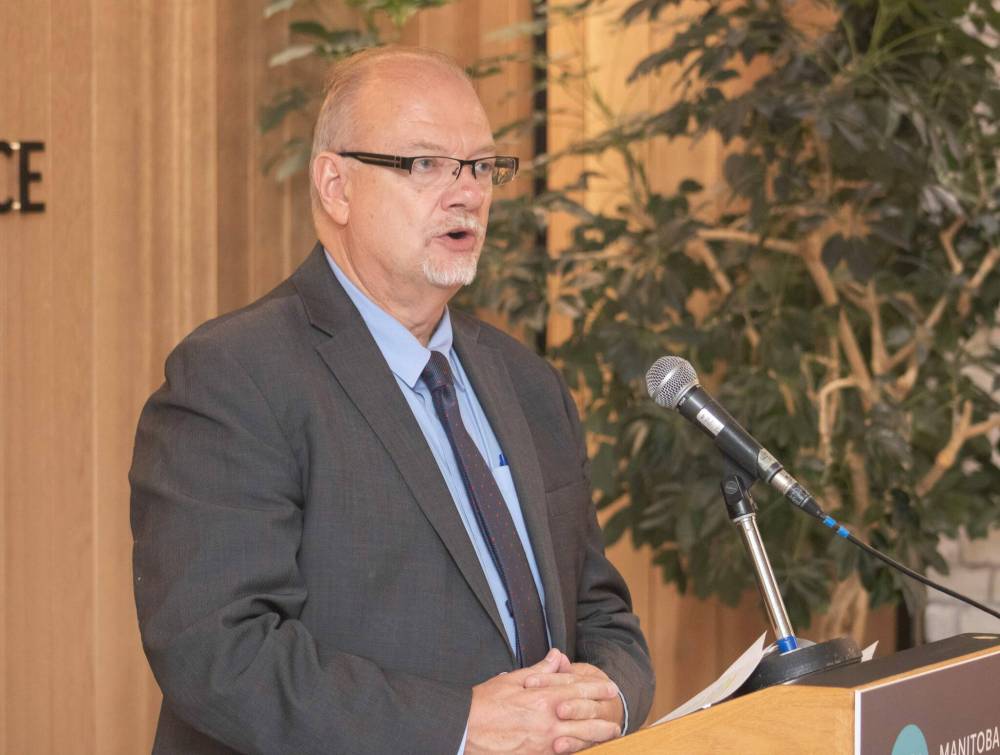Addictions services funded, operated by health authorities inadequate, review concludes
Advertisement
Read this article for free:
or
Already have an account? Log in here »
To continue reading, please subscribe:
Monthly Digital Subscription
$0 for the first 4 weeks*
- Enjoy unlimited reading on winnipegfreepress.com
- Read the E-Edition, our digital replica newspaper
- Access News Break, our award-winning app
- Play interactive puzzles
*No charge for 4 weeks then price increases to the regular rate of $19.00 plus GST every four weeks. Offer available to new and qualified returning subscribers only. Cancel any time.
Monthly Digital Subscription
$4.75/week*
- Enjoy unlimited reading on winnipegfreepress.com
- Read the E-Edition, our digital replica newspaper
- Access News Break, our award-winning app
- Play interactive puzzles
*Billed as $19 plus GST every four weeks. Cancel any time.
To continue reading, please subscribe:
Add Free Press access to your Brandon Sun subscription for only an additional
$1 for the first 4 weeks*
*Your next subscription payment will increase by $1.00 and you will be charged $16.99 plus GST for four weeks. After four weeks, your payment will increase to $23.99 plus GST every four weeks.
Read unlimited articles for free today:
or
Already have an account? Log in here »
Hey there, time traveller!
This article was published 26/07/2023 (868 days ago), so information in it may no longer be current.
Manitoba’s publicly delivered addictions services lack the capacity, standards and co-ordination to provide substance-abuse treatment in a timely way, Auditor General Tyson Shtykalo determined following a 15-month review of provincially funded programming.
“The addictions and opioid crisis continues in Manitoba, across the country,” Shtykalo said. “We wanted to see if Manitobans had access to addictions-treatment services when they needed them. We found, the results of our report, that they often did not.”
Shtykalo made 15 recommendations to address numerous gaps and shortcomings within withdrawal, treatment and recovery programs operated and funded by regional and provincial health authorities.

Manitoba’s publicly delivered addictions services lack the capacity, standards and co-ordination to provide substance-abuse treatment in a timely way, according to a new report by the auditor general Tyson Shtykalo. (John Woods / The Canadian Press files)
“If the recommendations are addressed in an appropriate manner, we would see, as Manitobans, quite an improvement in the availability of addictions treatment services,” he said.
The office of the auditor general ordered the review in March 2022 and released its findings Wednesday.
It covered the period between July 1, 2017 and June 30, 2022 and reviewed Rapid Access to Addictions Medicine clinics, the Manitoba Opioid Support Treatment program, community-based treatment programs and in-house, or residential, treatment programs.
The Interlake-Eastern and Southern Health regions were not included in the audit as they did not offer residential and withdrawal services.
Shtykalo said a lack of co-ordination between programs and service providers —including agencies and non-profits receiving money from the province — was a major theme of the audit.
The province also failed to establish performance targets to measure results, and while data on wait times was inconsistent, people waited longer to get care in many cases, according to the report.
Overall, the audit found addictions treatment services did not achieve desired results, owing to a lack of capacity and co-ordination in several areas, deficiencies in record-keeping and reporting and inadequate resources.
The audit found five years after the province released the VIRGO report (known formally as Improving Access and Coordination of Mental Health and Addiction Services: A Provincial Strategy for all Manitobans) many of the issues identified in that document persist.
It also confirmed the province’s RAAM clinics cannot keep up with demand, with more than 1,200 Manitobans turned away over a 12-month period ending June 30, 2022, most in Winnipeg.
During a visit to a clinic in May 2022, the auditor general’s office observed that 75 per cent of people seeking help were turned away due to a lack of capacity.
Government house leader Kelvin Goertzen highlighted the province’s five-year strategic plan to improve mental health, substance use and addictions services in response to the auditor’s findings. He acknowledged more work needs to be done.
“Incidentally, the road map identifies many of the same concerns that the auditor general found,” Goertzen said. “In many ways, the road map is a real-time response to the auditor’s findings with significant progress already made.”
The Steinbach MLA said all 15 audit recommendations are being partially or fully addressed.

Mike Thiessen / Winnipeg Free Press Files
Government house leader Kelvin Goertzen highlighted the province’s five-year strategic plan to improve mental health, substance use and addictions services in response to the auditor’s findings.
Goertzen rejected suggestions the Tory government dragged its feet to make necessary improvements since the VIRGO report was released in 2018, noting additional RAAM clinics have opened and Suboxone (naloxone) has been made more widely available, on top of other program improvements.
“Action has been happening,” Goertzen said, pointing to a commitment to add 1,648 addictions-treatment spaces. “I think the road map is significant and historic.”
The auditor general’s report also noted provincial standards were not in place at the time of the audit, but are now being rolled out to provincially funded addictions-services providers. The audit did not examine non-government funded services.
Goertzen said the Opposition NDP stalled efforts to establish standards when it blocked Bill 33 from becoming law in the spring. It would have required both private and non-profit addictions-services providers to apply for a provincial licence.
Manitoba Liberal Leader Dougald Lamont said the province neglected its duty to provide health care to people struggling with substance abuse, based on the auditor’s findings.
“None of that is happening because this government didn’t think it was their job,” the St. Boniface MLA said. “They spent the last seven years cutting, freezing, laying people off and destroying programs.”
No members of the NDP were made available to answer questions Wednesday.
But in a statement, Point Douglas MLA Bernadette Smith said government cuts have prevented people from getting help and reduced community safety.
“In just one year, over 1,200 Manitobans tried to get treatment but were turned away – that is unacceptable,” the mental health and community wellness critic said.
danielle.dasilva@freepress.mb.ca








